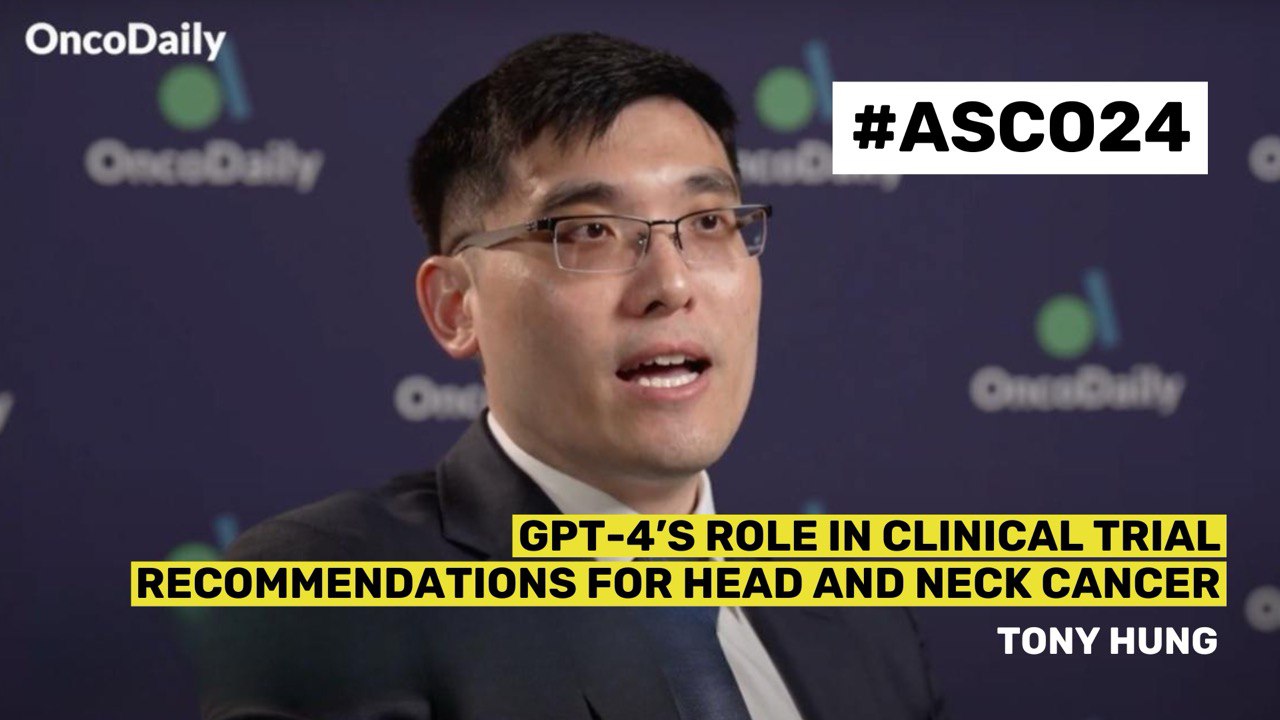The American Society of Clinical Oncology (ASCO) Annual Meeting is one of the largest and most prestigious conferences in the field of oncology. This year, the meeting took place from May 31 to June 4 in Chicago, Illinois. The event gathers oncologists, researchers, and healthcare professionals from around the world to discuss the latest advancements in cancer research, treatment, and patient care. Keynote sessions, research presentations, and panel discussions are typically part of the agenda, providing attendees with valuable insights into emerging trends and innovations in oncology.
This year, OncoDaily was at ASCO 2024 for the first time covering the meeting on-site. We had the pleasure of interviewing researchers who summarized the highlights of their work.
In this video, Tony Hung from Memorial Sloan Kettering Cancer Center, shares their insights on ‘Performance of a trained large language model to provide clinical trial recommendation in a head and neck cancer population.’
Hi, my name is Tony Hung. I am a head and neck medical oncologist at the Memorial Sloan Kettering Cancer Center. So my abstract summarized the result of a study that we conducted in evaluating the performance of a trained large language model powered by GPT-4 by OpenAI in providing [clinical trial recommendations] for a head and neck patient population.
What we found was quite impressive in that over the two-month period where we collected patient case from November to December of 2023, we analyzed about 178 cases. At the time, there were about 56 clinical trial that are ongoing in the head and neck oncology service. And GPT-4 [demonstrated] what I would consider a moderate performance, achieving a precision of 63%, a recall of 100% with a harmonic mean of 0.77. Comparatively, this performance exceed the historical performance of untrained GPT in providing oncology recommendation by about four to 20-folds.
What this pilot or proof-of-concept study suggests is the potential of these trained large-language model to [improve] clinical trial search, but also the possibility of these model in supporting oncology provider in the clinical trial accrual process.
More videos and content from ASCO 2024 on OncoDaily.
